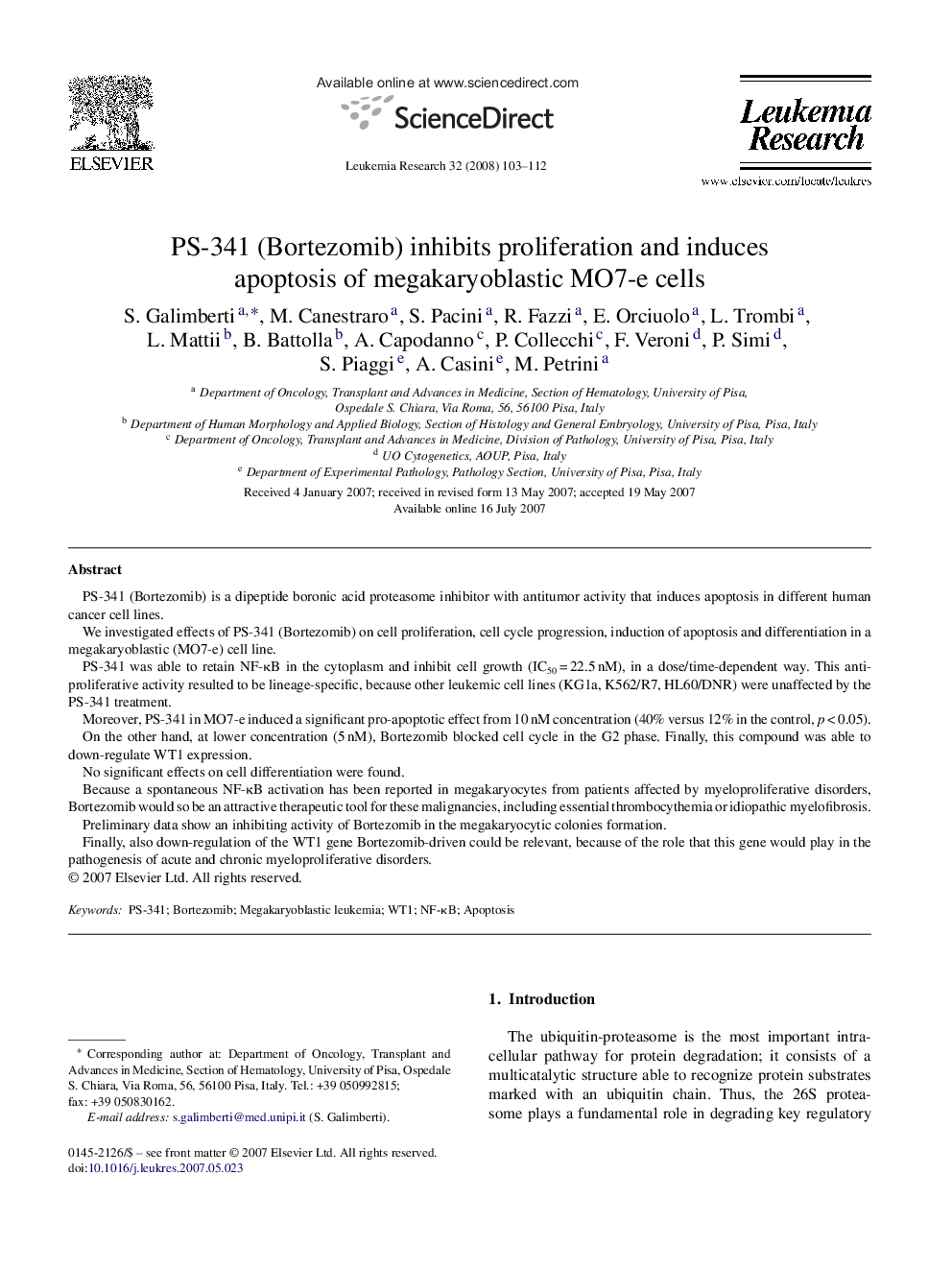| Article ID | Journal | Published Year | Pages | File Type |
|---|---|---|---|---|
| 2139442 | Leukemia Research | 2008 | 10 Pages |
PS-341 (Bortezomib) is a dipeptide boronic acid proteasome inhibitor with antitumor activity that induces apoptosis in different human cancer cell lines.We investigated effects of PS-341 (Bortezomib) on cell proliferation, cell cycle progression, induction of apoptosis and differentiation in a megakaryoblastic (MO7-e) cell line.PS-341 was able to retain NF-κB in the cytoplasm and inhibit cell growth (IC50 = 22.5 nM), in a dose/time-dependent way. This anti-proliferative activity resulted to be lineage-specific, because other leukemic cell lines (KG1a, K562/R7, HL60/DNR) were unaffected by the PS-341 treatment.Moreover, PS-341 in MO7-e induced a significant pro-apoptotic effect from 10 nM concentration (40% versus 12% in the control, p < 0.05).On the other hand, at lower concentration (5 nM), Bortezomib blocked cell cycle in the G2 phase. Finally, this compound was able to down-regulate WT1 expression.No significant effects on cell differentiation were found.Because a spontaneous NF-κB activation has been reported in megakaryocytes from patients affected by myeloproliferative disorders, Bortezomib would so be an attractive therapeutic tool for these malignancies, including essential thrombocythemia or idiopathic myelofibrosis.Preliminary data show an inhibiting activity of Bortezomib in the megakaryocytic colonies formation.Finally, also down-regulation of the WT1 gene Bortezomib-driven could be relevant, because of the role that this gene would play in the pathogenesis of acute and chronic myeloproliferative disorders.
